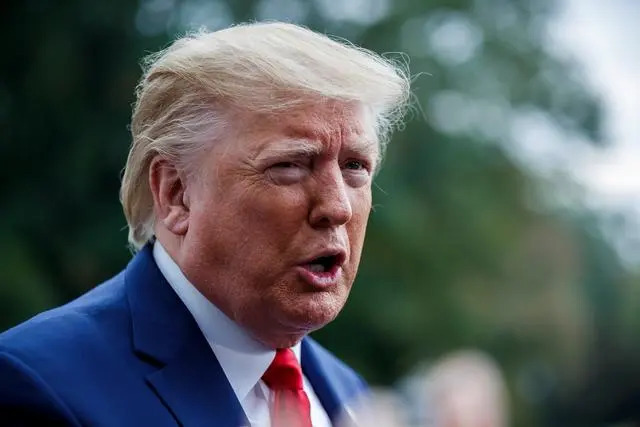为什么中国不担心特朗普再任美国总统?
编者按:倘若特朗普再次当选,美国的对华政策将会如何呢? 3月21日,清华大学战略与安全中心研究员周波在南华早报发表题为《Why China can rest easy if Trump is re-elected US President》(为什么中国不担心特朗普再任美国总统)的英文评论。
周波认为,即使特朗普再次赢得选举,其对华政策很可能与拜登政府大同小异,难以对中国造成实质性影响,反倒会加剧其国内撕裂和盟友离心,使美国更难恢复其因采取双重标准而丧失的公信力和道义权威。
【文/观察者网专栏作者 周波】
在美国准备投票选举下一任总统之际,特朗普在部分全国性民调中,略微领先于拜登。倘若特朗普再次当选,美国的对华政策将会如何?我的答案是:2.0版的特朗普政府将与现在的拜登政府大同小异。
2017年特朗普就任总统后,美国对华政策发生了180度大转变,但其主要遗产并非拜登上台后以“去风险”的名义延续的特朗普提出的“脱钩”政策,而是两党在意识形态领域形成的反华共识。

尽管获得了北约的全力支持,乌克兰的反攻还是以失败告终,失去了夺回所有失地的希望,而俄罗斯则不得不忍受一个扩大的北约。俄乌冲突最有可能的结果,是在欧洲中心地带达成一项无人满意的停火协议。
在中东,特朗普最重要的外交成就—旨在改善以色列与几个阿拉伯国家关系的《亚伯拉罕协议》已被束之高阁。拜登与以色列总理内塔尼亚胡关系冷淡,而特朗普则不同,在与内塔尼亚胡任期重叠的四年间,两人是最为亲密的政治盟友。与拜登相比,特朗普会让以色列更放手一搏,无论这会加剧多少地区冲突。
如果特朗普再度当选,伊朗核问题只会更加恶化。截至目前,德黑兰尚未做出生产核弹的政治决定,但中东局势越动荡,伊朗开发核弹的诱惑就越大。伊朗已加快生产60%浓度浓缩铀的速度,很快就可以将60%的浓度提升至生产核弹所需的90%浓度。沙特阿拉伯威胁称,如果伊朗开发核弹,沙特阿拉伯也将制造核弹。
(乌克兰和中东)这两场战争的输家不仅是交战各方,还包括美国。美国对乌克兰和加沙问题采取的截然相反的双重标准,使其公信力和道德权威所剩无几。全球南方国家也广泛对美国的极端虚伪进行了批判。这种损害很难修复,尤其在国家领导人是一位并不在乎人心向背的 “交易者”的情况下。
如果特朗普再次当选总统,议员格林(Marjorie Taylor Greene)所言的“国家大离婚”现象会进一步加剧。无论谁成为下一任美国总统,都将会发现美国越来越难以推广所谓的“基于规则的国际秩序”; 认同所谓的“民主与专制对决”的全球南方国家寥寥无几;甚至美国的盟友也不愿意选边站;会有更多的事情需要与中国讨论合作。
那么,中国有什么好担心的呢?
英文原文:
With Donald Trump pulling slightly ahead of Joe Biden in some national polls as the US prepares to vote for its next president, what might America’s China policy look like if Trump is reelected? My answer is simple: a Trump 2.0 administration will look a lot like Biden’s.
America’s China policy took a U-turn when Trump became president in 2017. But his major legacy is not decoupling – which Biden has continued in the name of “de-risking”. It is something ideological: a bipartisan consensus against China that has taken root.
To be fair, Trump is not an ideologist. But once bilateral relations are hijacked by ideology, the room for flexibility drastically shrinks. Can Trump break camp? A good example is Richard Nixon. Once a diehard anti-communist rightist, the former US president is best remembered for his icebreaking trip to China.
Nixon, however, is well-recognised as a strategist while Trump is a self-satisfied “deal-maker”. In his first book, Trump: The Art of the Deal, he wrote: “My style of deal-making is quite simple and straightforward. I aim very high, and then I just keep pushing and pushing to get what I’m after.”
Such a strategy, ironically, seems to work best on American allies. They are appalled by his remarks that he would encourage the Russians to “do whatever the hell they want” to any Nato country that doesn’t fulfil its financial obligations to the military alliance.
Should Trump win a second term, it is almost certain that more Nato members would hurry to meet the target defence spending of 2 per cent of gross domestic product so as to avoid the worst-case scenario – America’s withdrawal from Nato. If this is a stick, it is expected to work much better than Biden’s carrot.
It won’t work on China, though. Trump has threatened to place a tariff of 60 per cent or more on all Chinese imports. But this would slash the share of US imports from China to near-zero. US manufacturers in China would take a hit. US financial markets would tumble. And Americans would pay higher prices for imports from elsewhere.
Therefore, Trump wouldn’t differ very much from Biden and his administration’s “small yard, high fence” restrictions on the flow of key technologies to China. But neither man can stem the flow of global, including US-trained, tech talent to China. Beijing is making massive investments in innovation and, in 2022, China filed for more intellectual property than the rest of the world combined.
Would Trump make a difference on the Taiwan issue, Beijing’s primary concern? Unlike Biden, Trump has never openly vowed to defend Taiwan. But Beijing won’t be complacent. Nancy Pelosi’s Taiwan visit in 2022 triggered People’s Liberation Army live-fire drills around the island. Beijing’s reaction has to increase with each provocation and each reaction will create a new status quo. Now Chinese military jets regularly fly over the Taiwan Strait’s median line regardless of the Taiwanese authorities’ protests.
Trump’s China policy would also depend on how he could garner domestic and international support. An ABC News/Ipsos poll last year found that three-quarters of Americans believe the country is heading in the wrong direction. A divided America simply cannot have robust diplomacy.
The wars in Ukraine and the Middle East will surely distract the next American president from Beijing. Trump claims that, as president, he could end the Russian-Ukraine war in a day. This is self-praise, but also telling that it is Washington’s support for Kyiv that is the key to resolving the conflict.
Ukraine, having failed in a counteroffensive fully supported by Nato, has lost hope of taking back all lost territories while Russia will have to bear with an enlarged Nato. The most likely outcome is an armistice in the heart of Europe that no one likes.
In the Middle East, Trump’s most significant diplomatic achievement, the Abraham Accords that aims to improve relations between Israel and several Arab countries, has been squandered. Unlike Biden who has frosty relations with Israeli Prime Minister Benjamin Netanyahu, Trump was Netanyahu’s closest political ally during the four years they overlapped in office. He could give Israel a freer hand than Biden, however much that stirs up regional conflict.
Iran’s nuclear issue would only worsen with another Trump presidency. So far, Tehran hasn’t made the political decision to produce a nuclear bomb, but the more turbulent the Middle East, the more attractive it will be for Iranians to do that. It has already sped up its production of 60 per cent enriched uranium. It can quickly upgrade this to the 90 per cent needed for a nuclear bomb. Saudi Arabia has pledged to create a nuclear bomb if Iran does.
The losers in the two wars are not just the warring parties. It also includes the United States, which has very much lost its credibility and moral authority thanks to the double standards in its contrasting responses to Ukraine and Gaza. Such glaring hypocrisy is widely criticised in the Global South. The damage cannot be easily repaired, particularly by a deal-maker who doesn’t give a damn about winning hearts and minds.
That Trump may once again be president will further speed up what US representative Marjorie Taylor Greene calls the “national divorce”. Whoever becomes the next president will find it harder to sell the so-called rules-based international order, will find few countries in the Global South wishing to buy into the “democracy vs autocracy” divide, will find even America’s allies reluctant to take sides, and will have a longer to-do list to discuss with Beijing. Then, why should China worry?
标签:美国,北约,中国,乌克兰,尼克松,中国政府,核弹,政策,盟友,中东